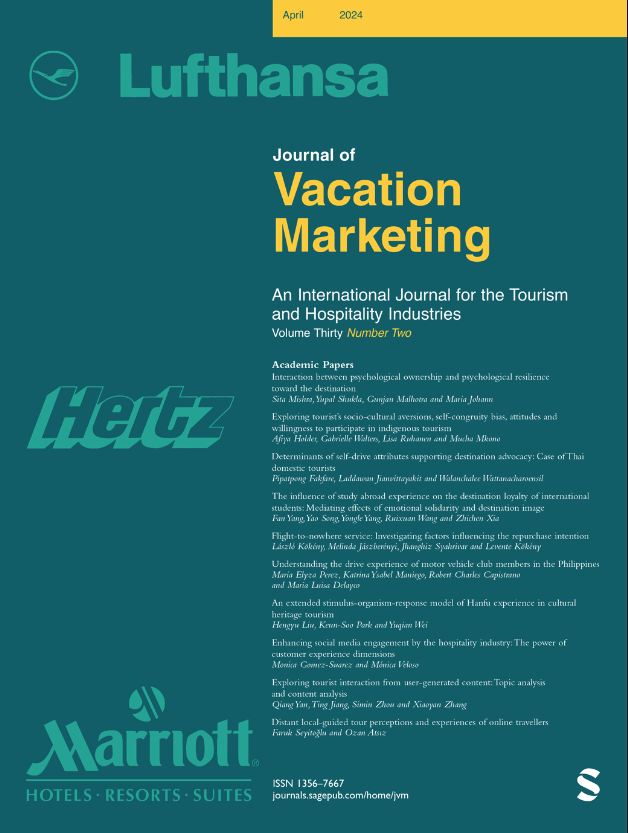并非所有的语言游客都参加语言课程——这是正式和非正式语言旅游的决定因素
IF 4.5
3区 管理学
Q1 BUSINESS
引用次数: 0
摘要
语言旅游的特点是语言学习是旅行的主要或次要动机。尽管语言游客通常在目的地学习语言课程,但许多人也选择通过沉浸式学习自主发展语言技能。然而,这种选择背后的机制被忽视了,尤其是在非正式语言游客在文献中仍然被忽视的背景下。本研究试图使用二元逻辑回归模型来确定预测语言游客在目的地上语言课的主要因素。使用了964名语言游客的样本,其中包括正式的(N = 409)和非正式(N = 555)语言游客。研究表明,在目的地上语言课的决定受到旅行时间、旅行前学习策略的更正式性、有奖学金、无亲属旅行、由于工具原因而有动机学习语言、以及由于语言相关原因而有目的地选择语言旅行目的地等变量的积极影响。非正式语言旅游受到目的地熟人、与亲戚一起旅行、在自主语言学习策略上投入更多、停留时间更短等变量的积极影响。这项研究揭示了一批被学术界和旅游业忽视的旅行者。本文章由计算机程序翻译,如有差异,请以英文原文为准。
Not all language tourists take language courses – the determinants of formal and informal language tourism
Language tourism is characterized by language learning being a primary or secondary motivation for the trip. Although language tourists typically take language courses in the destination, many also choose to develop their language skills autonomously through immersion. However, the mechanisms underlying this choice are ignored, particularly in a context where informal language tourists are still largely neglected in the literature. This study seeks to identify the main factors that predict language tourists’ decision to take language lessons in the destination, using a binary logistic regression model. A sample of 964 language tourists is used, which comprises both formal ( N = 409) and informal ( N = 555) language tourists. It is concluded that the decision to take language lessons in the destination is positively influenced by trip length, greater formality of pre-trip learning strategies, having a scholarship, traveling without relatives, being motivated to learn a language due to instrumental reasons, and purposeful choice of language travel destination for language-related reasons, among other variables. Informal language tourism is positively influenced by having acquaintances in the destination, traveling with relatives, investing more in self-directed language learning strategies, and having shorter stays, among other variables. This study sheds light on a group of travellers that has been neglected by both academia and the tourism industry.
求助全文
通过发布文献求助,成功后即可免费获取论文全文。
去求助
来源期刊

Journal of Vacation Marketing
Multiple-
CiteScore
9.70
自引率
15.70%
发文量
54
期刊介绍:
Journal of Vacation Marketing is a fully peer reviewed international journal that publishes original research and review articles on topics relating to the marketing of destinations and businesses/organisations involved in the wider tourism, hospitality and events industries. Its objective is to provide a forum for the publication of refereed academic papers and reviewed practitioner papers which are of direct relevance to industry, while meeting the highest standards of intellectual rigour.
 求助内容:
求助内容: 应助结果提醒方式:
应助结果提醒方式:


